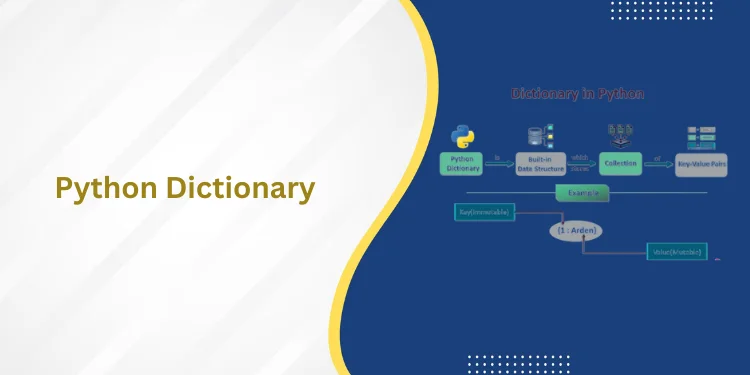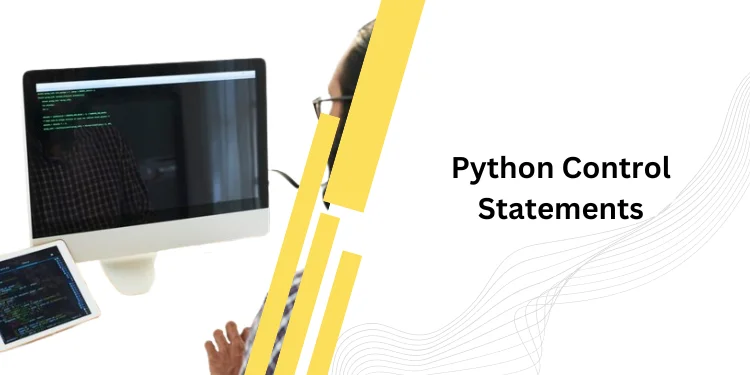Introduction To Stress Management
Stress management is an attribute that is often neglected. According to new research from ADP, the majority of Indian professionals face stress at work at least once a week. As per the research, seven out of ten Indian workers (70%) reported they experienced stress on a regular basis at least once during the workweek.
Feeling stressed? It’s normal to experience more stress and anxiety because of the events surrounding the Coronavirus outbreak progress. Everyone has faced stress at some point in their lives. Long-term stress, on the other hand, can build and have a negative influence on health. These side effects can be avoided by taking steps to lessen and manage stress.
Do you ever feel like even the simplest tasks and conversations are too much for you to handle? Have you ever wanted to shout or cry out because your mind was racing with so many tasks that needed to be completed? You may be under a lot of stress if this is the case. Everyone nowadays appears to lead an incredibly complicated and fast-paced life packed with seemingly endless tasks and commitments. It can be difficult to see through the fog and decide what is and is not relevant. Learning how to cope with stress properly can make you happier, healthier, and even more productive at work.
The news continues to come in, which may be both overwhelming and frightening. Coping with at-risk family members or patients, attempting to keep youngsters engaged while being stuck indoors all day, getting work done while at home, or simply adjusting to the new situation can all cause anxiety and fear. The tension can build up over time and impact you both physically and mentally.
Understanding stress | Stress Management

A sense of emotional or bodily tension is referred to as stress. Any event or thought that makes you annoyed, irritated, or nervous can trigger it. Your body’s response to a challenge or high demand is called stress. It can be beneficial in small doses when it helps you in avoiding danger or makes it to a deadline. Stress, on the other hand, can have an impact on your health if it lasts for a long time. Work or school, big life changes, interpersonal difficulties, and financial problems are all common sources of stress. Finding coping mechanisms for stress tolerance will help you cope with these pressures. Both stress and anxiety are experienced by most people.
- Stress responses also help our body adjust to new situations.
- Stress can be beneficial when it keeps us attentive, motivated, and prepared to avoid danger.
- A stress reaction, for example, can also help our body work harder and stay awake for longer if you have any important test coming up. When stressors continue without relief or moments of relaxation, it becomes a problem.
Short-term and long-term stress are both present. Both can cause a wide range of symptoms, but chronic stress can have a major impact on the body over time and have long-term health consequences.
Excessive stress on your body over a long period of time might eventually lead to burnout. Burnout is a mental, physical, and emotional condition of stress.
You may learn more about what stress does to the body.
The following are some of the most common stress indicators which everyone deals with at some point in their life:
- Headaches
- Low energy
- Muscle tension in the neck and shoulders
- Physical aches and pains
- Racing heartbeat
- Difficulty sleeping
- Digestive problems
- Changes in mood
- Clammy or sweaty palms
- Frequent sickness
Stress Management

Stress can be a short-term or long-term problem, depending on how your life evolves. Most physical, mental, and behavioral effects of stress can be avoided by practicing stress management practices on a regular basis.
Effective stress management skills practices allow one to finally be free from stress’s hold on your life, making you happier, healthier, and more productive The ultimate goal of this is to live a balanced life that involves time for work, relationships, relaxation, and fun—as well as the resilience to keep going when things become tough in your life.
Stress Management Techniques: How to Manage Stress in Your Life
 Identifying the different sources of stress in our lives is the very first step in stress management training. To do so, we must examine our behaviors, attitudes, and excuses. Our stress levels will stay out of our control unless we accept responsibility for the role we play.
Identifying the different sources of stress in our lives is the very first step in stress management training. To do so, we must examine our behaviors, attitudes, and excuses. Our stress levels will stay out of our control unless we accept responsibility for the role we play.
It takes practice to learn how to manage your stress, but you can — and should — do it. Here are 10 stress management exercises that make it go more smoothly.
Exercise | Stress Management
Physical activity is always considered essential for stress management and mental health improvement. And the best part is that there are a variety of activities that might help you relax.
Join a gym, take an acting class, or go for a brisk walk. You keep in mind that there are multiple strategies to increase your daily physical exercise: strength training, kayaking, walking, hiking, and spin classes are just a few examples of stress-relieving activities.
Deep Breathing | Stress Management
Simply focus on your breath or change the way you breathe so that it can reduce your overall stress level significantly. In just a few minutes, breathing methods may relax your body and mind.
- Keep your hands on your lap and your feet on the floor in a comfortable position. You can also lie down.
- Close your eyes for a minute.
- Consider yourself in a relaxing environment. Imagine a place It could be on the beach, or in a lovely field of grass, or someplace else that makes you feel calm.
- Slowly inhale and exhale deeply 3 times.
- Perform this exercise for 5 to 10 minutes at a time.
Sleep Well | Stress Management
Sleep is an effective stress reliever. A daily sleep schedule relaxes and heals the body, enhances focus, it controls mood, and also sharpens judgment and decision-making abilities. When you are well-rested, you become a better problem solver and can manage stress.
A night’s sleep makes it easier to deal with the stress of the day. You’re less patient and more quickly upset when you’re tired, which can lead t
o increased stress. Most of the average adult needs between 7 to 9 hours of sleep every night.
Eat Well | Stress Management
Eating a balanced and regular diet will make you feel better overall. It may also help with mood regulation. For energy, your meals should include plenty of vegetables, fruit, nutritious grains, and lean protein. And make sure you don’t forget any. It’s harmful to you and can put you in a bad mood, which can make you more stressed.
A bad diet can make you more susceptible to stress. Emotional eating and grabbing for high-fat, high-sugar foods may bring a short-term sense of relief, but they will only add to your long-term stress.
Potato chips and cookies, for example, can also trigger a blood sugar increase which may give temporary relief. Further, when your blood sugar levels drop, you may feel more anxiety and stress.
Positive Self-Talk/ Talk About Your Problems | Stress Management
Let’s face it, we’re all talking to ourselves! We converse out loud occasionally, but mostly in our heads. Positive (“I can do this” or “everything will be fine”) and negative (“I’ll never get better” or “I’m so stupid”) self-talk are both possible. Stress is increased by negative self-talk. Positive self-talk can help you in de-stressing and stress management. You can learn to convert negative ideas to positive ones with practice.
Take a Break | Stress Management
To give your mind a break from stress, plan some real downtime. This may be difficult for you at first if you are someone who enjoys setting goals. However, if you stick with it, you’ll learn to appreciate these moments. You can follow these techniques of relaxation mentioned below:
- Meditation Yoga
- Listening to music that you enjoy
- Spending time in the environment
- Plan a short trip alone/with loved ones
Make Time for Hobbies | Stress Management
You should schedule time for activities that you enjoy. Every day, try to do something that makes you happy, and it will help you relax. It doesn’t have to take a long time; 15 to 20 minutes will do. Hobbies that are relaxing include:
- Reading
- Knitting
- Doing an art project
- Playing golf
- Watching a movie
- Listening to music
- Playing cards and board games
Go Easy On Yourself | Stress Management
Accept that no matter how hard you try, you will never be able to achieve perfection. You also don’t have complete control over everything in your life. So, do yourself a favor and avoid overestimating your abilities. Also, don’t forget to maintain your sense of humor. One of the most efficient methods to relax is through laughter.
Slow Down | Stress Management
Modern life is so busy that we need to take a break from time to time to relax and enjoy ourselves. Examine your life for little opportunities which you do so. Consider the following scenario:
Set your time 5 to 10 minutes ahead, set your watch. You’ll be able to get there a little earlier and not have to worry about being late.
Switch to the slow lane if you’re traveling on the highway to avoid road rage.
Break down large projects into smaller chunks. If you don’t have to, don’t try to respond to all 100 emails; instead, respond to a few of them.
Eliminate Your Triggers | Stress Management
Find the primary sources of stress in your life.it is your job, your commute, or your work pressure that’s the problem? If you can figure out what they are, see if you can get away from them or at least lessen them in your life.
Write a stress journal if you’re having problems figuring out what’s generating your stress. Make a note of when you feel the most worried and see if you can detect a pattern, then figure out how to eliminate or minimize those triggers.
To read more about workplace stress click here: How to deal with workplace stress
Which is the Best Stress Management online course| Stress Management

Stress is influenced by external and internal factors. Your physical surroundings, your career, your connections with others, your house, and all the scenarios, challenges, difficulties, and expectations you face on a daily basis are all external factors.
This Stress Management course provides you with the most up-to-date information available. Some of them will serve as a refresher on what you already know. Some of them will be unfamiliar to you.
DataTrained’s detailed Stress Management course’s goal is to provide you with a deeper understanding of the subject as well as practical guidelines, approaches, and techniques for dealing with stress. Join us today at DataTrained and get mentorship in the field of Lifeskills with various such courses and change the perspective of your life. Get help from 50+ therapists who will motivate you to succeed and drive your way to a better positive life.
Read about it more here:( course name Winning Over Stress)
Conclusion
There are both benefits and drawbacks to stress. Benefit if you bring things into awareness and a drawback if you go on blindly without addressing it. However, if you do not learn to manage stress efficiently, you may face plenty of problems that can lead to burnout and other mental illnesses.
In today’s world, stress is a daily occurrence, it is part of our life. Unlike before, because of the pandemic, we have been witnessing it way too much now.
There are a few very common stress indicators, symptoms include headache, muscle tension, especially in the neck and shoulder, physical aches, pains, and racing of heartbeat. Also, it may contribute to physical illnesses like cardiovascular disease and psychosomatic disorders.
Effective stress management always allows you to break free from the grip of stress in your life, and also allows you to become better, healthier, and more productive. The stress Management method includes a variety of techniques for dealing with stress and difficulty in one’s life. Stress and its management can help us to live a more healthy and balanced life. It is a natural physical, mental, and emotional reaction to any stressful situation.













